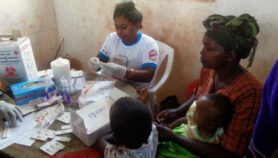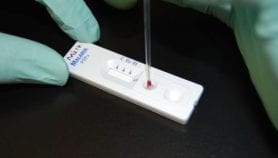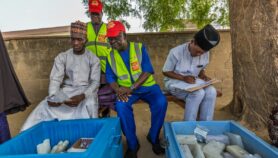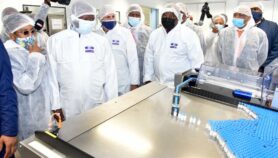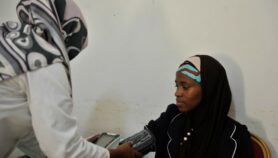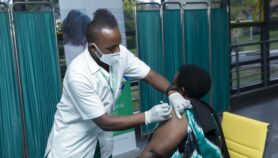By: Charles Mkoka
Send to a friend
The details you provide on this page will not be used to send unsolicited email, and will not be sold to a 3rd party. See privacy policy.
[LILONGWE] Malawi has launched a national health research agenda to guide its health research activities, policymaking and healthcare service delivery.
The Malawi National Health Research Agenda (NHRA) was launched by the country’s National Commission for Science and Technology (NCST) — which developed the agenda in collaboration with the ministry of health — in Lilongwe last month (24 February). It was devised as part of the UK-based Health Research Capacity Strengthening Initiative (HRCSI), implemented by the Department for International Development (DFID) and the Wellcome Trust.
Until now, the majority of Malawi’s health research has been externally driven, leaving little room for the country to focus on locally relevant priorities, according to Mathildah Chithila-Munthali, HRCSI’s programme manager.
She said the new five-year agenda consists of nationally-agreed research priorities that will focus on enhancing institutional capacity to carry out high-quality, multidisciplinary health research, the formulation of national health research policy and programmes, and disseminating scientific knowledge.
"It will also strengthen the coordination and regulation of a national research environment in Malawi," Chithila-Munthali told SciDev.Net.
She said it was timely to overhaul health policies that had been formulated prior to independence, but warned that implementing the new agenda would not be without challenges.
A complete overhaul, she said, would need to ensure good governance and stewardship, better financing, product development, efficient service delivery, the adoption of information technologies and the strengthening of community systems.
Research priorities identified in the agenda include communicable diseases, HIV/AIDS, malaria, tuberculosis, pneumonia, diarrhoeal diseases and neglected tropical diseases including schistosomiasis, onchocerciasis, lymphatic filariasis, trachoma and soil-transmitted helminth infections, according to Chithila-Munthali.
Research will also be scaled up in the areas of disease epidemiology, prevention, diagnostics, treatment, care and support.
The NCST will provide research grants via locally mobilised funds made available by the NHRA, but initial grants to researchers will be kick-started with funds from DFID and the Wellcome Trust, which are each injecting nearly US$8 million into the agenda.
"This new opportunity [will] enable young and upcoming scientists to get research funding," said Dylo Pemba, a medical parasitologist at Chancellor College at the University of Malawi.
Muza Gondwe, a science communicator in Malawi, said locally driven health research was "an encouraging step in the right direction".
But she expressed concern over whether Malawi’s desire for home-grown health research could be fully achieved while the country remained reliant on external funding.



